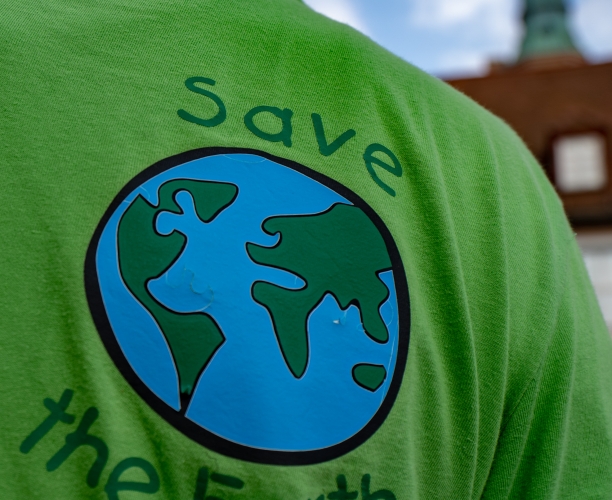

Asian markets of India (67%), Singapore (51%, Indonesia (50%) and Malaysia (49%) believe their govt has a clear gameplan on how govt, businesses and people should tackle climate change
April 22nd is Earth Day. A new global survey by Ipsos to capture public opinion on Climate Change shows only 1 in 3 global citizens (31%) believe their government has a clear plan in place for how government, businesses and people should be working together to tackle climate change; and APAC displayed divided views – India (67%), Singapore (51%), Indonesia (50%), Malaysia (49%) and Thailand (47%) agreeing more and Australia (30%), South Korea (22%) and Japan (14%) agreeing less.
Who should act?
Firstly, the citizens have put the onus on the government and believe if the local government does not act now to combat climate change, it would be failing the people of its country. Interestingly, this view is endorsed by not only more number of global citizens (61%), but across the APAC markets of Thailand (72%), India (67%), Indonesia (66%), Malaysia (65%), Singapore (61%), Australia (61%), South Korea (47%) and Japan (36%).
Secondly, the dominant view among global citizens (59%) and across APAC markets of India (67%), Thailand (66%), Indonesia (64%) Malaysia (59%), Singapore (58%), Australia (57%) and South Korea (42%) was exhorting businesses in the local country to act else they would be failing their employees and customers. Japan (28%) had least agreeing.
Thirdly, the respondents polled put the onus on citizens, exhorting individuals to act now to combat climate change, else they would be failing future generations. This view was predominantly shared by global citizens (63%) and led by the Asian markets of Singapore (70%), Thailand (69%), India (69%), Indonesia (67%), Malaysia (63%), Australia (58%) and South Korea (54%). Japan (30%) had relatively less agreeing.
Further, there was a strong view that the economic cost of climate change was a bigger challenge than the economic cost of measures to reduce climate change and this was endorsed by global citizens (42%) and the APAC markets of Indonesia (54%), Singapore (48%), Malaysia (44%), Australia (42%), India (42%), South Korea (42%) and Thailand (36%). Japan had least agreeing, at 22%.
Who is leading the pack?
At least 1 in 3 (31%) global citizens believe their local country is leading the world in the fight against climate change. APAC was a mixed bag with India (71%), Malaysia (54%), Singapore (38%), Thailand (37%) and Indonesia (36%) endorsing the view and Australia (24%), South Korea (20%) and Japan (13%) agreeing less on their country’s active role.
Notably, there was a strong belief emerging among global citizens (66%) and Asians, that their countries need to do more in their fight against climate change, particularly in India (76%), Thailand (76%), Singapore (70%), Malaysia (68%), Indonesia (68%), Australia (60%), South Korea (56%), and Japan (47%).
The survey also shows citizens’ strong views on penalizing those who are responsible for the climate crisis. They believe that the developed countries (such as the United States, United Kingdom, Canada, Germany, and France) who have contributed most to the climate emergency, by producing the most carbon emissions, should pay more to solve the problem. The consensus was unanimous among global citizens (62%) and Asians alike, across South Korea (69%), Indonesia (69%), Singapore (69%), Thailand (68%), India (67%), Malaysia (61%), Australia (55%) and Japan (45%).
Though citizens polled agreed that developed nations were already at the forefront of fighting climate change, endorsed by global citizens (46%), and Asian markets of Indonesia (74%), India (70%), Thailand (68%), Malaysia (55%), South Korea (50%), Singapore (49%), Australia (38%) and Japan (26%).
At the same time, developed nations were expected to do more in combating climate change, unanimously endorsed by global citizens (70%), and the APAC markets of Indonesia (76%), Thailand (75%), South Korea (74%), India (74%), Singapore (73%), Malaysia (64%), Australia (63%) and Japan (58%).
3 in 4 global citizens (75%) and majority across the Asian markets of Singapore (79%), South Korea (76%), Thailand (75%), Indonesia (74%), Malaysia (74%), India (72%), Australia (71%) and Japan (66%), majority agree that to tackle climate change completely, all nations need to work together.
Some nations felt they have been made to sacrifice a lot in the fight against climate change. With 1 in 3 global citizens (34%) agreeing. In Asia, Indonesia (73%) and India (67%) agree most followed by Malaysia (40%), Thailand (36%) and Japan (35%).
What are we going to do?
India is the only odd ball with 62% agreeing the futility of changing one’s own behavior to tackle climate change as it would have minimal impact. For global citizens and across Asian markets more respondents disagreed.
Barring India (64%), global citizens and Asians either disagree or display polarized views about paying more of their income in taxes than they currently do now to help prevent climate change.
65% urban Indians agree Climate change is beyond their control – it’s too late to do anything about it, while global citizens and Asians disagreed that it is too late to do anything about the environment.
70% of the global citizens polled believe if everyone made small changes in their everyday lives this could have a big impact on tackling climate change. Similar view echoed across the APAC markets of Indonesia (77%), Thailand (75%), Singapore (72%), Malaysia (70%), India (69%), Australia (67%), South Korea (64%) and Japan (51%).
3 in 10 global citizens (30%) and 67% of Indians polled believe now is not the right time to invest in measures to reduce climate change given the tough economic conditions. Though most Asian markets displayed polarized views.
Indians are adopting the Ostrich Policy with 62% believing the adverse impact of climate change is somewhere in the future and not important for everyone to worry about. While global citizens (51%) and APAC markets of South Korea (62%), Indonesia (61%), Japan (57%), Australia (51%) were seen to be deeply concerned about the impact of climate change and disagreed it would not happen anytime soon.
Citizens were willing to take personal actions to mitigate the impact on the environment, with these 3 actions across global markets including Asia: Global citizens say their top action would be a financial incentive, or tax cut to allow them to make more environmentally friendly purchases of goods and services (38%); having easy access to information on the steps which they could take every day (36%) and seeing the impact of climate driven weather events in their country (34%).
Perils of Perception
Citizens said they were willing to adopt different ways in which households could change their behaviours to reduce global greenhouse gas emissions (or carbon footprints).
Global citizens and most respondents believe switching to purchasing renewable electricity (39%), recycling (33%) and less packaging (25%), would be the best way to change behaviors.
Interesting behavior alterations emerged in some of the Asian markets. South Korea (41%) and Singapore (35%) citizens said they would shift to public transport. 26% Indians said they would have a vegan diet. Malaysia (37%) and Japan (31%) said they would choose recycling.
Who are the biggest contributors to global warming?
Global citizens (28%) and the citizens of the APAC markets of India (37%), Indonesia (37%), Malaysia (37%), Thailand (29%), Singapore (28%), Japan (27%) and South Korea (24%) believe usage of products that deplete the ozone layer is the biggest contributor to global warming. 23% in Australia believe air pollution caused by transport (cars, trucks, planes, trains, ships, etc) is the biggest contributor to global warming.
However, in reality the biggest contributor to global warming was industry, electricity, and heat production, followed by deforestation, agriculture, and other land use changes.
Hamish Munro, CEO, Ipsos Asia Pacific said, “On Earth Day, when we take stock of how we are doing in our crusade of mitigating the impact of climate change, our survey shows the enormity of the climate change crisis. Saving the planet now rests with the government, businesses, brands, and individuals. Every citizen has a role to play by altering their personal behaviours, making conscious, eco-friendly and green choices, to reduce the adverse impact on our planet.”
Amit Adarkar, CEO Ipsos India said, “Indians believing the government has a structured and concrete plan on how the govt, businesses and citizens should be working together, to combat the adverse impact of climate change, that cuts much ice as there are some initiatives where we see a convergence of collective goals. Ban on usage of single use plastics for instance; adoption of green fuels and corpus budgeted for ramping up of electrification infrastructure; solar energy focus. Indians adopting the proverbial Ostrich policy believing no immediate threat from climate change is worrying. As the fastest growing market in G20, India could be suffering from a wave of optimism that could dilute the seriousness of climate change, despite freak weather events in the recent past.”
About this study
These are the results of a 29-country survey conducted by Ipsos on its Ipsos Global Advisor online platform, and in India, on its IndiaBus platform. Ipsos interviewed an international sample of 21,231 online adults aged 18 years and older in India, 18-74 in, Canada, Malaysia, South Africa, Turkey and the United States, 20-74 in Thailand, 21-74 in Indonesia and Singapore, and 16-74 in all other markets between 20th January and 3rd February 2023 in 28 countries and 17th February and 3rd March 2023 in Switzerland.
About Ipsos
Ipsos is one of the largest market research and polling companies globally, operating in 90 markets and employing over 18,000 people.
Our passionately curious research professionals, analysts and scientists have built unique multi-specialist capabilities that provide true understanding and powerful insights into the actions, opinions and motivations of citizens, consumers, patients, customers or employees. Our 75 solutions are based on primary data from our surveys, social media monitoring, and qualitative or observational techniques.
Our tagline "Game Changers" sums up our ambition to help our 5,000 customers move confidently through a rapidly changing world.
Founded in France in 1975, Ipsos has been listed on the Euronext Paris since July 1, 1999. The company is part of the SBF 120 and Mid-60 indices and is eligible for the Deferred Settlement Service (SRD).ISIN code FR0000073298, Reuters ISOS.PA, Bloomberg IPS:FP www.ipsos.com



